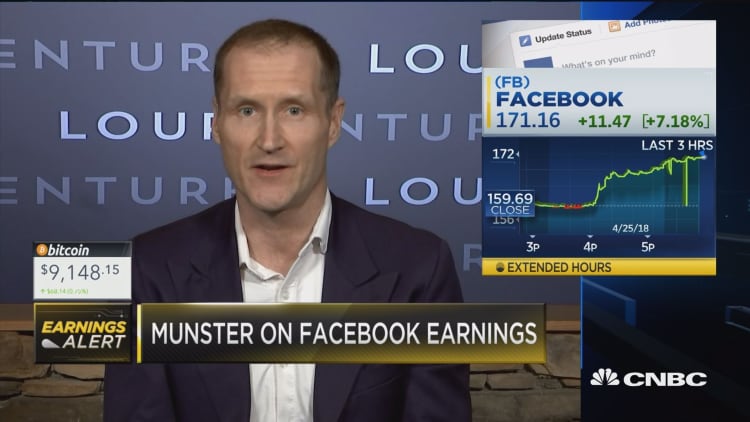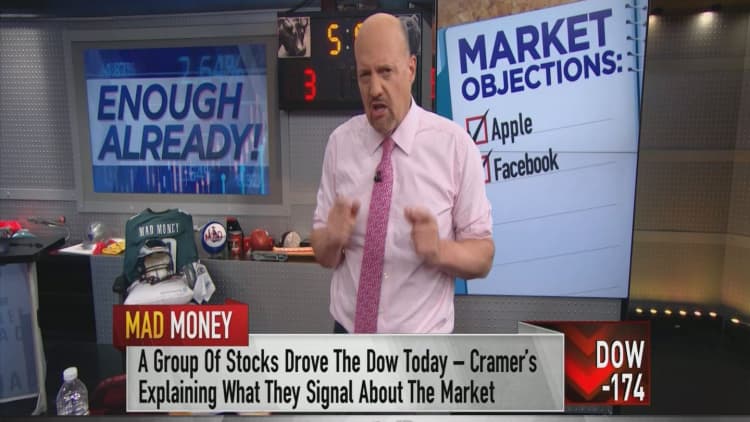Facebook has been hammered by investors, politicians and consumer groups over its handling of user data in the seven weeks since the Cambridge Analytica scandal surfaced.
In response, the company has placed greater restrictions on partners, taking away their ability to access information on where photos were tagged as well as the names and biographies of people who comment on Instagram posts.
But rather than scaring away apps and advertisers, Facebook's changes have been embraced by many third parties on the platform. That was the sentiment at Facebook's annual F8 developer conference in Silicon Valley this week.
"It will hurt people who try to cut corners," said Noah Curran, the CEO of Monkedia, an online advertising firm that works with companies promoting their brands on social media. "It makes Facebook a better place and when Facebook is a better place it means people care more about the content brands place on the platform."
CNBC spoke with a handful of Facebook partners at the conference. Their reactions underscore the company's first-quarter financial results, which zoomed past analysts' estimates last week. Altogether, they bolster Facebook's case for sustained growth and show a continuing appetite from advertisers even after the hysteria around Cambridge Analytica's misuse of data from tens of millions of users.

A week before F8, Facebook announced a number of changes that led developers to make the decision to stay home from the event, the New York Times reported. The company said developers will no longer have programmatic access to certain user data. It also disabled certain things users could do through third-party apps, such as RSVPs to events on Facebook and publishing posts to the site.
Also in the past few weeks, Facebook said it will require new levels of verification for certain business partners. Companies will need to get authorized to place political ads on the social network, and depending on which services developers want to use, they might now have to get their businesses verified.
Monkedia's Curran said it was no problem getting verified to run political ads, and he commended Facebook for making such ads more transparent.
Similarly, Bence Abraham, head of customer success at Recart, which provides marketing services for e-commerce businesses through Facebook Messenger, said he welcomes any steps that give users a sense of trust. And Mike Riedijk, CEO of PageFreezer, which archives data from Instagram and other services, said his business experienced a brief impact from the data access changes, but no long-term issues.
Investor optimism
Facebook CEO Mark Zuckerberg is just a few weeks into his renewed effort to prove that Facebook can responsibly handle data of billions of users, after multiple embarrassing gaffes stemming from the 2016 election campaign. Along with conducting a thorough investigation and implementing new data protection services, the company plans to add 5,000 jobs before the end of the year in security and community operations.
Facebook's stock price has stabilized after plummeting more than 15 percent following the Cambridge Analytica revelations. James Cordwell, an analyst at Atlantic Equities, was bullish after the company's recent earnings report.
"The Q1 results provide some reassurance regarding the potential impact of the recent Cambridge Analytica-related crisis, given no discernible impact on user engagement or revenue trends," Cordwell wrote. "Management also commented that it had not seen any major advertiser pull spending from the platform, suggesting there is also unlikely to be a major impact in Q2."
Early responses from developers and advertisers at F8 suggest there's reason for optimism.
WATCH: 4 things that saved FB from Cambridge Analytica






